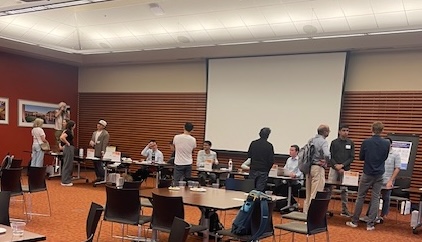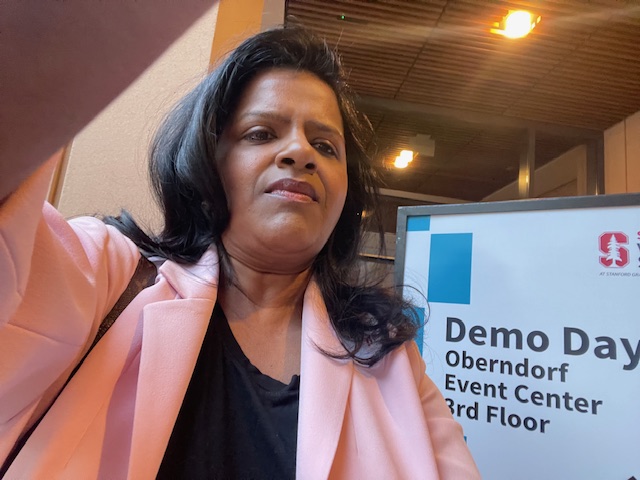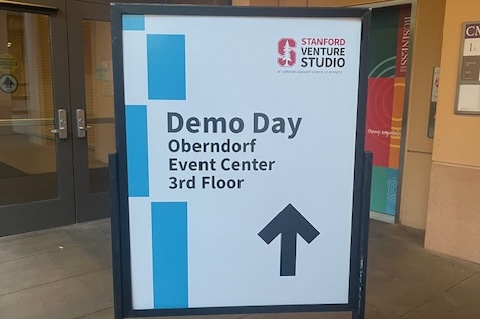On May 20, I had the privilege of participating in the Stanford Venture Studios Demo Day — an inspiring evening of bold ideas, boundary-pushing founders, and cross-disciplinary innovation. With around 15 teams presenting, spanning domains from climate and clean tech to healthcare and fintech, it was a powerful reminder that entrepreneurship is still one of the most effective tools we have, to solve real-world problems.

Hosted by Stanford Venture Studios and Stanford Center for Social Innovation coordinated by Mandy Chang (thank you for the gracious invitation!), this event brought together faculty, investors, mentors, and experienced professionals to provide feedback to the next generation of founders emerging from Stanford GSB and across the university.
Innovation at the Edge
What stood out to me most was the breadth of industries and the depth of ambition. These weren’t ideas in search of a market — they were products, platforms, and services developed in direct response to market failures, inefficiencies, and underserved needs. From carbon-neutral logistics to predictive healthcare analytics to inclusive financial platforms, these founders are thinking big and building fast.
Each pitch carried a different energy, but all were grounded in what I believe is the most important quality of a successful venture: empathy. Founders who could articulate the problem through the lens of their end users, who had immersed themselves in understanding pain points, and who were open to feedback stood out clearly. That’s something I always look for — whether in legal strategy or angel investing — and it was in strong supply here.

The Power of Feedback
As someone who sits at the intersection of law, strategy, and early-stage investing, I came to Demo Day not to evaluate, but to support. Events like these are not only about funding — they’re about sharpening ideas, identifying gaps, and encouraging resilience. I had the opportunity to offer feedback to several teams and was heartened by how openly it was received. This openness to iteration is what separates good ideas from fundable businesses.
The reality is, that legal and strategic clarity often lag behind product development in early-stage startups. But at Demo Day, I saw teams already thinking about compliance, IP, and operational scaling — all critical factors for long-term viability. I hope that this kind of thinking becomes the norm across startup ecosystems, especially as founders navigate global markets and more complex regulatory terrain.

Building a More Inclusive Pipeline
It was also encouraging to see the increasing diversity of the teams — in gender, nationality, and background. Entrepreneurship can’t be a closed loop if we expect it to deliver broad-based change. The more we include diverse perspectives in startup ecosystems, the more effective, sustainable, and scalable the solutions will be.
Initiatives like Stanford Venture Studios play a vital role in shaping that pipeline — not only by providing capital and mentorship but by fostering the curiosity and confidence it takes to launch and lead.
Looking Forward
I left the event energized — not just by the pitches, but by the mindset of the founders and the support of the broader community. I’m grateful to Stanford Venture Studios and Mandy Chang for including me in such a meaningful way.
As I continue my journey as a strategic advisor, angel investor, and advocate for global innovation, moments like these remind me why I do what I do. There is no shortage of brilliant minds with the will to solve problems. What they need is feedback, mentorship, and access.
That’s where we come in.
If you’re building something bold — or mentoring those who are — I’d love to connect. Let’s continue to lift each other up and invest in the future we want to see.

